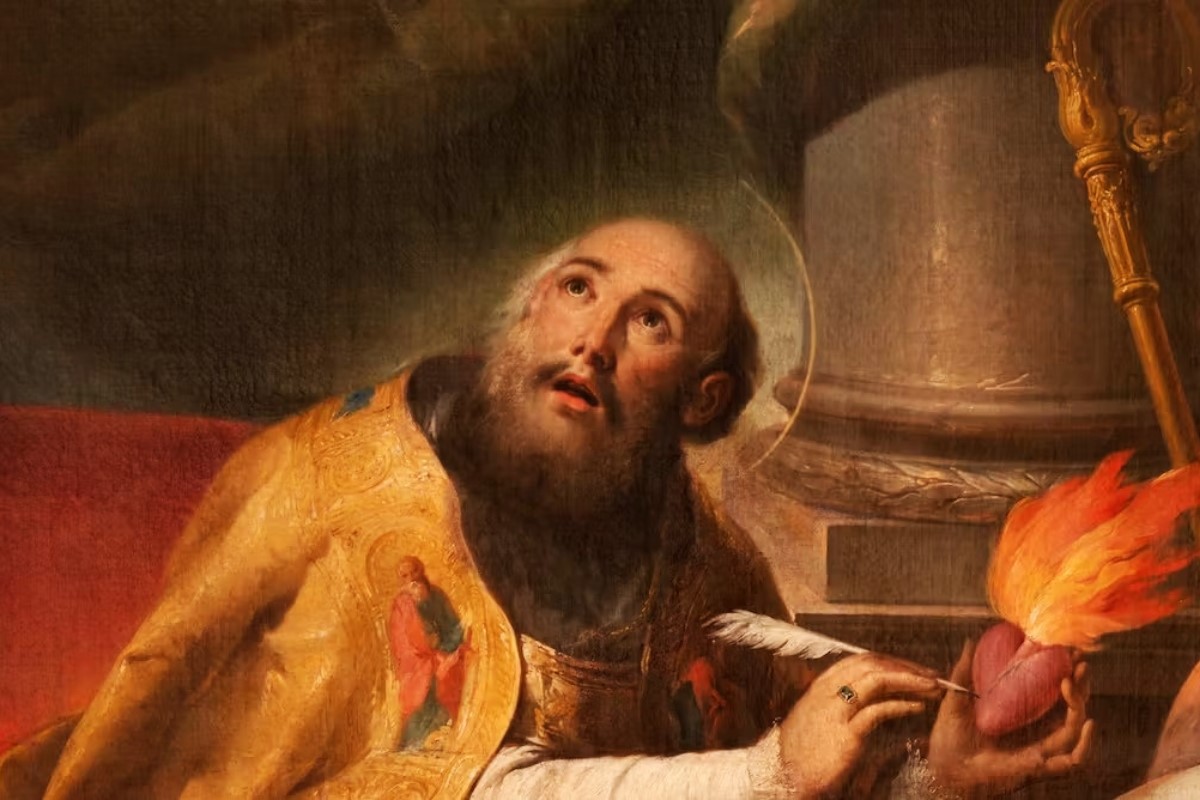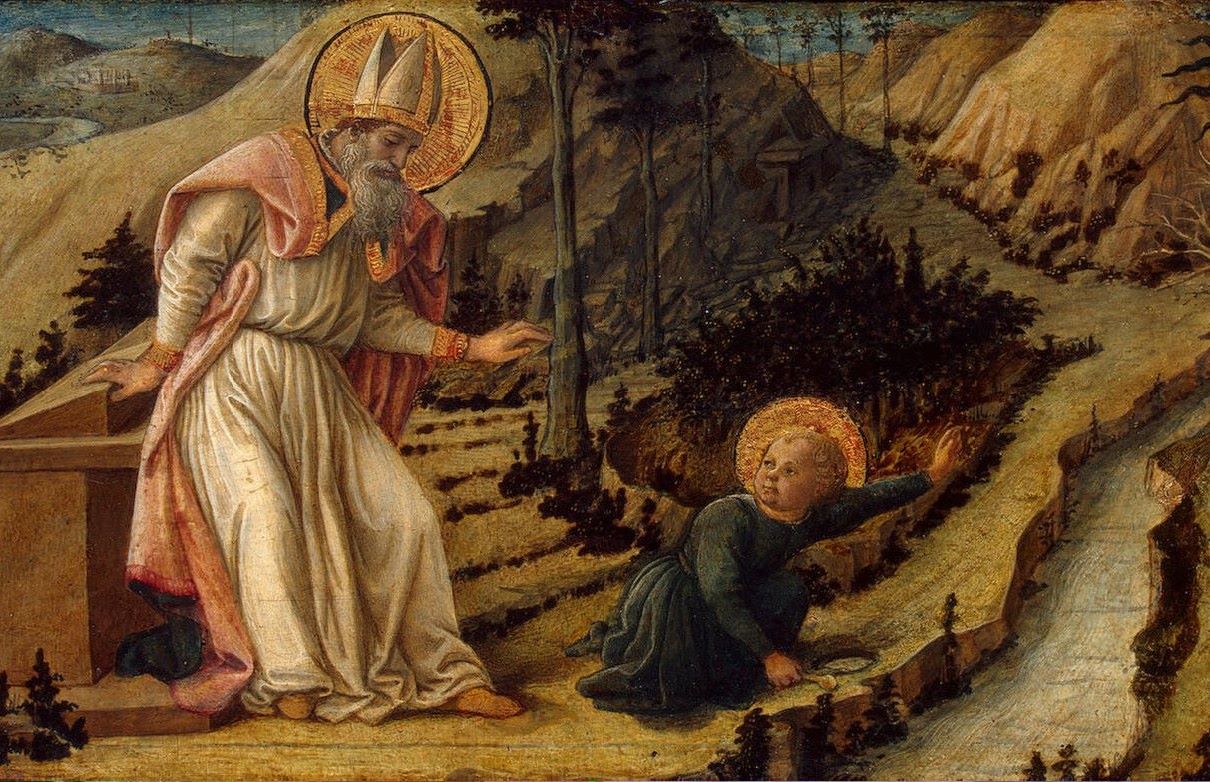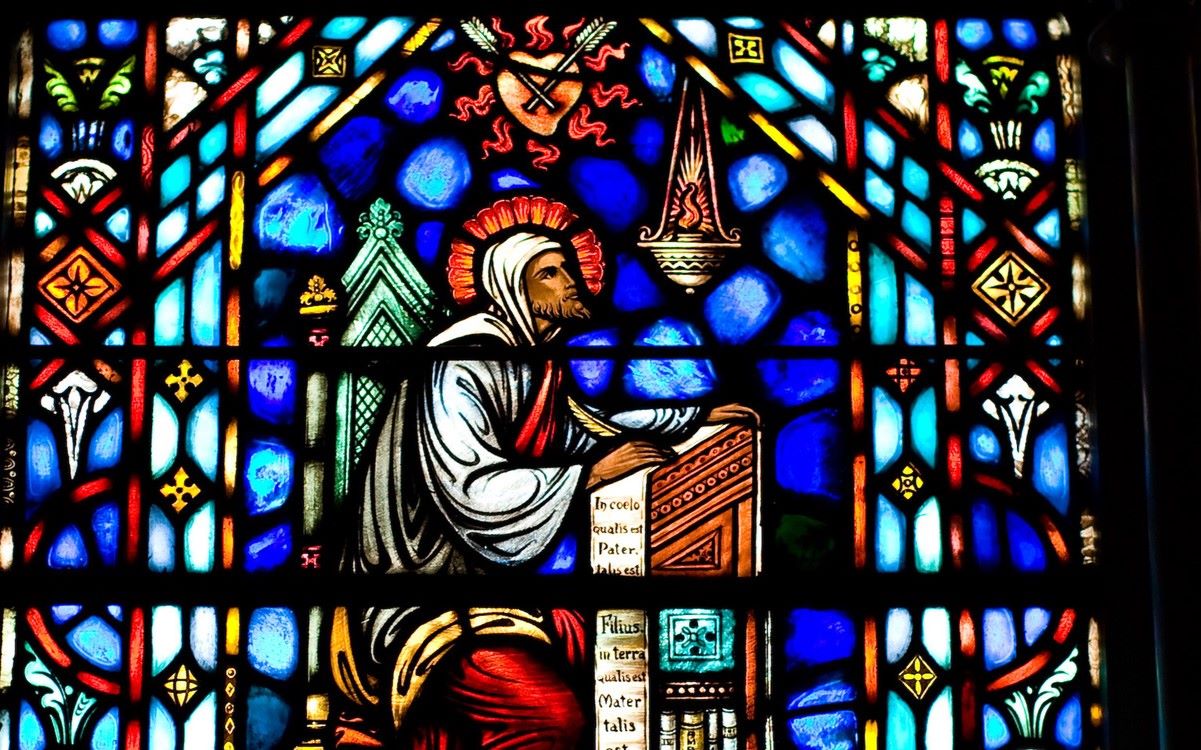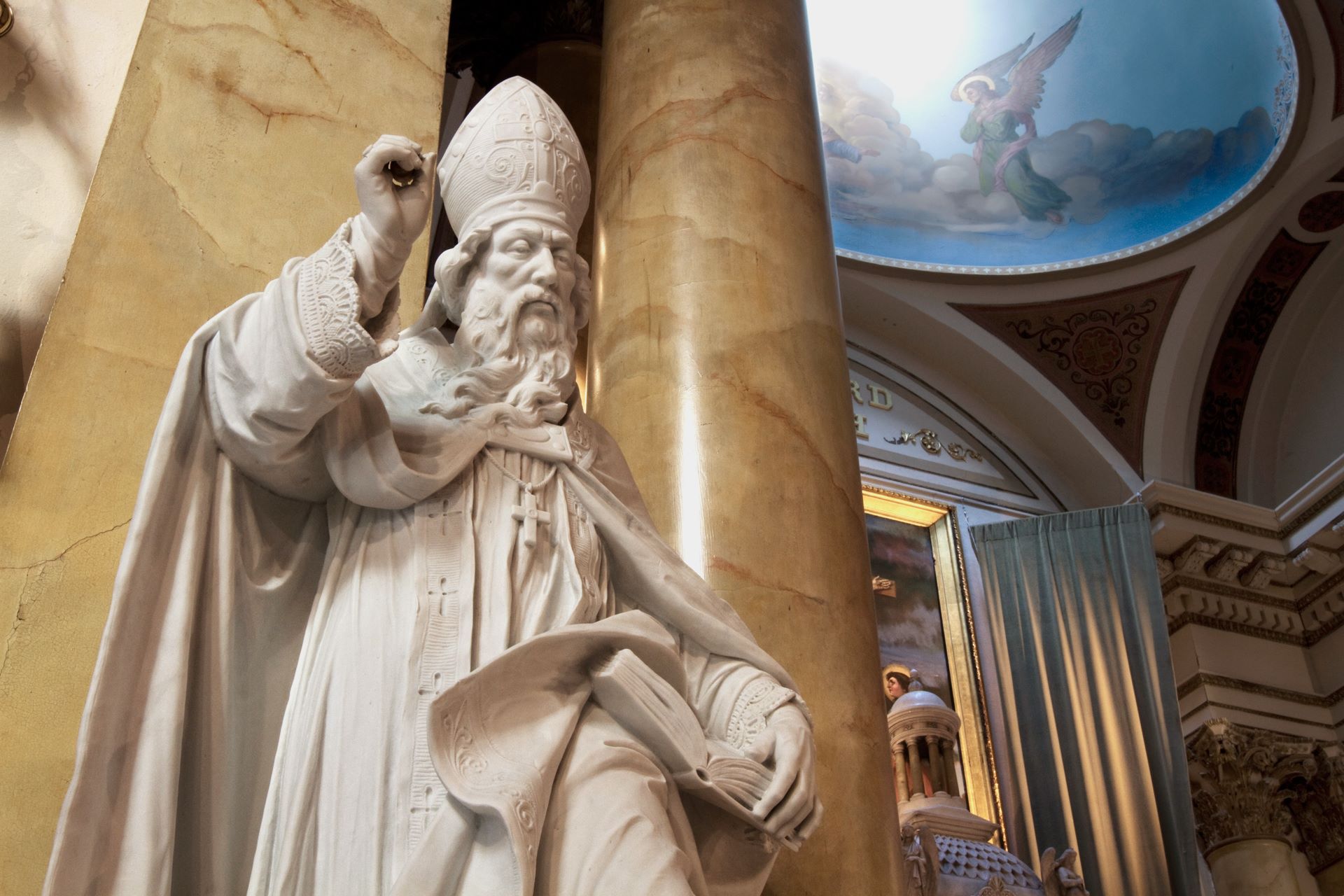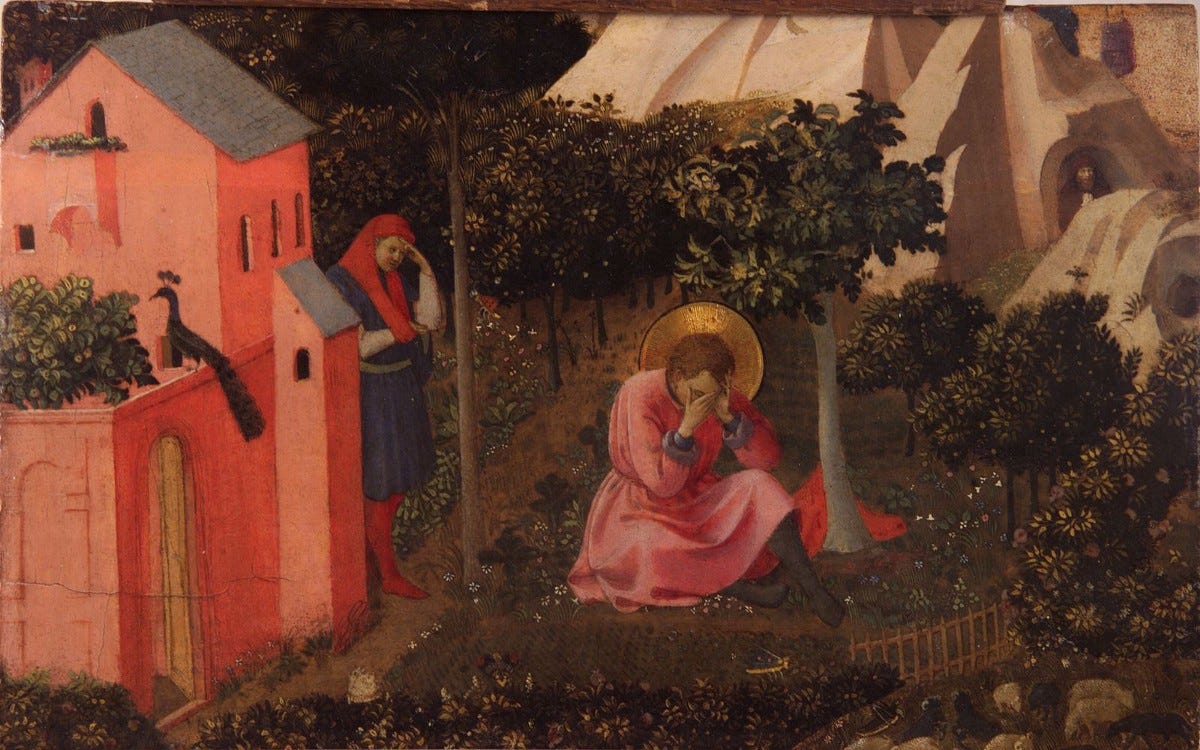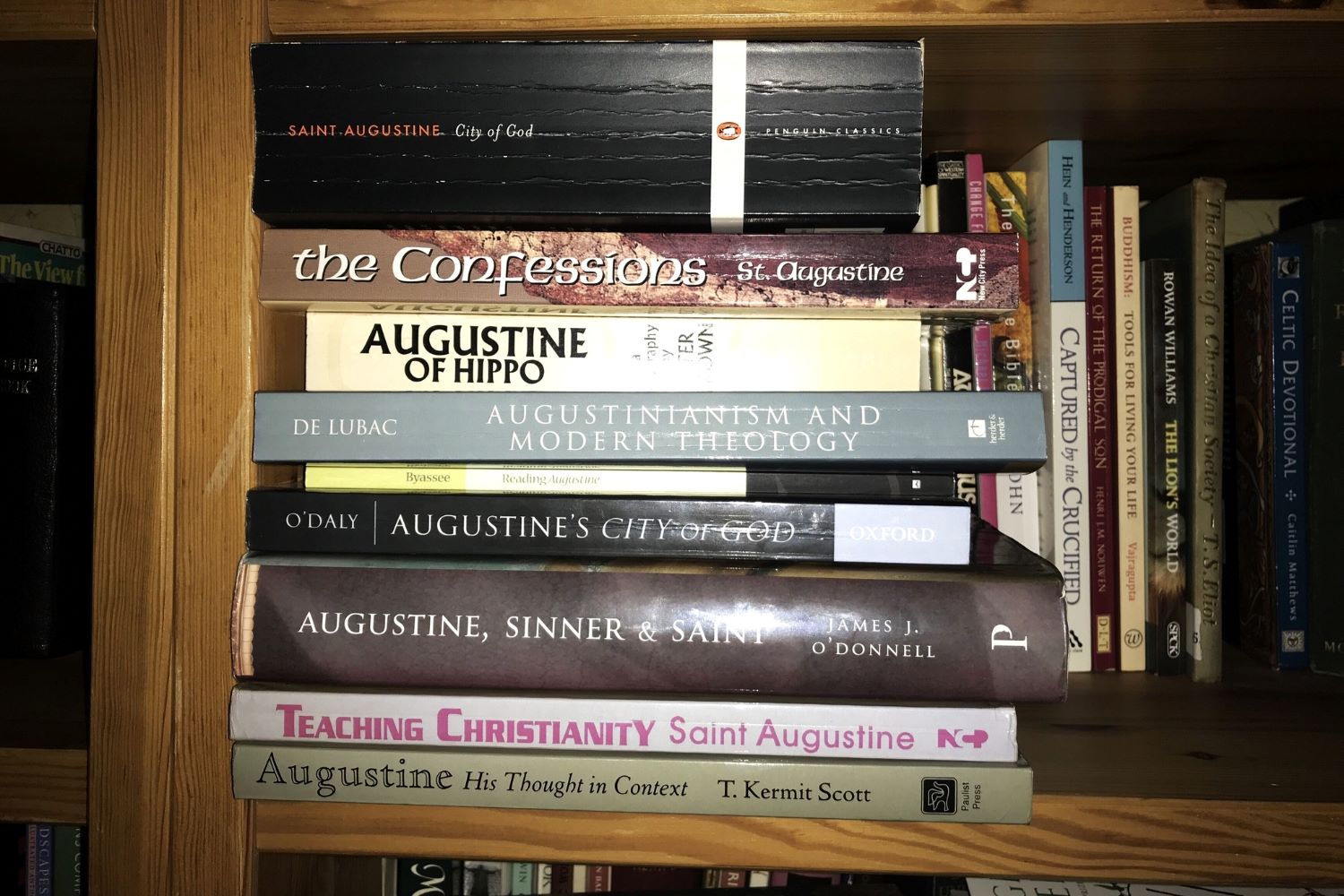Home>Theology and Spirituality>Who Was Augustine In The Bible


Theology and Spirituality
Who Was Augustine In The Bible
Published: February 10, 2024
Jason DeRose, Managing Editor at Christian.net, uses his expertise in religion and journalism to deepen understanding of faith's societal impacts. His editorial leadership, coupled with a strong academic background, enriches the platform’s diverse content, earning him recognition in both journalism and religious circles.
Discover the significance of Augustine in the Bible and his impact on theology and spirituality. Explore his teachings and influence in Christian history.
(Many of the links in this article redirect to a specific reviewed product. Your purchase of these products through affiliate links helps to generate commission for Christian.net, at no extra cost. Learn more)
Table of Contents
Introduction
Augustine of Hippo, also known as Saint Augustine, was a pivotal figure in the history of Christianity. Born in 354 AD in the Roman province of Numidia (present-day Algeria), Augustine's influence extends far beyond his lifetime, shaping the theological landscape of the Church and leaving an indelible mark on Christian thought.
As a theologian, philosopher, and bishop, Augustine's impact on Christian doctrine and spirituality is immeasurable. His writings continue to inspire and challenge believers and scholars alike, making him one of the most influential figures in the development of Western Christianity.
In this article, we will delve into the life, conversion, and enduring legacy of Augustine, exploring the profound impact of his theological contributions and the lasting imprint he left on the Christian faith. From his early years in North Africa to his transformational encounter with Christianity, Augustine's journey is a testament to the transformative power of faith and the enduring relevance of his teachings in the contemporary world.
Join us as we embark on a captivating exploration of Augustine's life and legacy, uncovering the profound insights and enduring wisdom that continue to resonate with believers and seekers across the globe.
Read more: Who Was Saint Augustine
Augustine's Early Life
Augustine's early life was marked by a blend of intellectual curiosity, spiritual yearning, and the cultural milieu of the Roman Empire. Born to a pagan father, Patricius, and a devout Christian mother, Monica, Augustine's upbringing was shaped by the contrasting influences of his parents. His mother, Monica, played a significant role in nurturing his Christian faith, instilling in him a deep reverence for the Christian tradition despite the prevailing pagan environment.
Growing up in Thagaste, a provincial town in North Africa, Augustine displayed exceptional intellectual prowess from an early age. His insatiable thirst for knowledge and innate intellectual acumen set him apart, foreshadowing his future as a formidable thinker and scholar. Despite his academic promise, Augustine's early years were also marked by youthful indiscretions and a period of spiritual searching.
As a young man, Augustine embarked on a quest for truth and meaning, immersing himself in the study of rhetoric, literature, and philosophy. His voracious appetite for learning led him to Carthage, a bustling center of learning in the Roman Empire, where he continued to pursue his academic interests while grappling with profound existential questions.
During this formative period, Augustine's intellectual pursuits intersected with his spiritual restlessness, leading him to explore various philosophical and religious traditions in search of ultimate truth and fulfillment. His encounters with Manichaeism, a dualistic religious sect, and his immersion in the teachings of Neoplatonism reflected his relentless quest for spiritual enlightenment and philosophical clarity.
Amidst the intellectual ferment of his youth, Augustine's journey was also marked by personal struggles and moral conflicts. His tumultuous relationship with a woman, whose name remains unknown, and the birth of a son out of wedlock, underscored the complexities of his early life and the profound moral dilemmas he confronted.
The convergence of intellectual inquiry, spiritual longing, and moral reckoning defined Augustine's early years, laying the groundwork for the transformative encounters and profound insights that would characterize his later life. The interplay of his intellectual pursuits, moral struggles, and spiritual aspirations set the stage for the remarkable odyssey that would ultimately lead Augustine to embrace Christianity and embark on a path of profound spiritual and intellectual significance.
Conversion to Christianity
Augustine's journey to Christianity was a profound and transformative odyssey that unfolded against the backdrop of his intellectual pursuits, moral struggles, and spiritual yearning. His quest for truth and meaning led him through a labyrinth of philosophical inquiries and religious explorations, ultimately culminating in a momentous encounter with the Christian faith.
The pivotal turning point in Augustine's spiritual pilgrimage occurred in Milan, where he encountered the renowned bishop, Ambrose. Through their interactions, Augustine was captivated by Ambrose's eloquence, wisdom, and profound exposition of Christian doctrine. Ambrose's influence, coupled with the persistent prayers of his mother, Monica, and the stirring impact of the Scriptures, gradually softened Augustine's heart and illuminated the path to his conversion.
Amidst the inner turmoil and existential angst that had long plagued him, Augustine experienced a profound spiritual awakening. His encounter with the Christian faith ignited a profound inner transformation, as he grappled with the weight of his past transgressions and sought solace in the redemptive grace of Christ. The tumultuous journey of his soul, vividly depicted in his autobiographical work, "Confessions," bears witness to the profound depths of his spiritual struggle and the transcendent grace that ultimately enveloped him.
In the throes of spiritual turmoil, Augustine was drawn to the Christian faith's profound message of redemption, grace, and the transformative power of divine love. His conversion to Christianity marked a watershed moment in his life, as he embraced the Christian worldview and committed himself to a life of faith, service, and theological inquiry.
The profound impact of Augustine's conversion reverberates through the annals of Christian history, serving as a testament to the enduring power of faith and the transformative potential of divine grace. His journey from intellectual skepticism and moral ambivalence to unwavering faith and spiritual conviction stands as a testament to the profound depths of human experience and the transcendent reality of divine intervention.
Augustine's conversion to Christianity not only reshaped the trajectory of his own life but also left an indelible imprint on the course of Christian theology and spirituality. His profound insights into the human condition, the nature of sin, and the redemptive work of Christ continue to resonate with believers across the centuries, offering timeless wisdom and enduring hope to all who seek solace in the embrace of divine grace.
The transformative power of Augustine's conversion serves as a beacon of hope and inspiration, illuminating the path for countless seekers and believers who, like Augustine, yearn for spiritual fulfillment, redemption, and the transformative embrace of divine love.
Role in the Church
Augustine's pivotal role in the Church unfolded as a testament to his unwavering commitment to theological inquiry, pastoral care, and the advancement of Christian doctrine. Following his conversion to Christianity, Augustine's profound intellectual acumen and spiritual insight propelled him into the vanguard of the Church, where he would leave an indelible mark on the course of Christian history.
Elevated to the episcopal see of Hippo Regius in 395 AD, Augustine assumed the responsibilities of a bishop with characteristic zeal and dedication. His episcopal tenure was marked by a steadfast commitment to the spiritual welfare of his flock, as he labored tirelessly to shepherd and guide the faithful amidst the tumultuous currents of the era. Augustine's pastoral ministry was characterized by a deep sense of compassion, wisdom, and unwavering devotion to the spiritual well-being of his congregation.
As a bishop, Augustine emerged as a formidable defender of orthodox Christian doctrine, engaging in theological polemics and doctrinal disputes that shaped the contours of early Christian theology. His erudition and eloquence were brought to bear in defense of the Christian faith, as he contended with heresies and theological controversies that threatened the integrity of Christian belief. Augustine's theological prowess and intellectual rigor positioned him as a leading figure in the articulation of Christian orthodoxy, as he grappled with complex theological issues and expounded upon the foundational tenets of the Christian faith.
Moreover, Augustine's influence extended far beyond the confines of his diocese, as his writings and epistolary correspondence traversed the ecclesiastical landscape, shaping the theological discourse of the wider Christian community. His prolific literary output, encompassing treatises, sermons, and theological works, served as a wellspring of theological insight and spiritual guidance, enriching the theological heritage of the Church and inspiring generations of believers and scholars.
In addition to his pastoral and theological endeavors, Augustine played a pivotal role in ecclesiastical governance and the broader ecclesial landscape of North Africa. His leadership and administrative acumen were instrumental in navigating the complex ecclesiastical challenges of his era, as he sought to uphold the unity and integrity of the Church amidst the vicissitudes of the time.
Augustine's enduring legacy as a bishop, theologian, and spiritual luminary continues to resonate with believers and scholars, bearing witness to the profound impact of his ecclesiastical contributions and the enduring relevance of his pastoral and theological insights. His unwavering commitment to the Church, coupled with his profound theological acumen, solidified his position as one of the most influential figures in the history of Christianity, leaving an indelible imprint on the ecclesiastical landscape and the theological heritage of the Church.
Theological Contributions
Augustine's theological contributions stand as a monumental edifice in the annals of Christian thought, shaping the contours of theological discourse and exerting a profound influence on the development of Christian doctrine. His profound insights, theological treatises, and philosophical acumen coalesced to form a rich tapestry of theological reflection that continues to resonate with believers and scholars across the centuries.
At the heart of Augustine's theological legacy lies his profound exploration of the human condition and the nature of sin. Central to his theological framework is the concept of original sin, which posits that all humanity inherits the consequences of Adam and Eve's transgression in the Garden of Eden. Augustine's seminal work, "The City of God," expounds upon the pervasive impact of sin on the human condition, elucidating the profound implications of humanity's fallen state and the redemptive work of Christ.
Moreover, Augustine's theological oeuvre encompasses a robust engagement with the doctrines of grace, predestination, and divine sovereignty. His seminal treatise, "On the Predestination of the Saints," delves into the intricate interplay between divine sovereignty and human agency, grappling with the enigmatic tension between God's foreknowledge and the volitional choices of humanity. Augustine's nuanced articulation of predestination and grace continues to engender profound theological reflection, igniting spirited discourse and contemplation within the theological milieu.
Furthermore, Augustine's theological contributions reverberate through his profound exploration of the Trinity and the nature of God. His magnum opus, "De Trinitate," delves into the intricate mysteries of the Triune God, expounding upon the dynamic interplay between the Father, Son, and Holy Spirit. Augustine's profound insights into the Triune nature of God have left an indelible mark on the trajectory of Trinitarian theology, enriching the theological heritage of the Church and inspiring generations of theologians and believers.
In addition to his theological treatises, Augustine's sermons and pastoral writings bear witness to his profound pastoral sensitivity and theological acumen. His eloquent expositions of Scripture and profound spiritual counsel continue to resonate with believers, offering timeless wisdom and spiritual nourishment to all who seek solace in the enduring truths of the Christian faith.
Augustine's theological contributions stand as a testament to the enduring relevance of his insights and the profound impact of his theological legacy, illuminating the path for countless seekers and scholars who continue to draw inspiration from his profound theological reflections and spiritual wisdom.
Read more: Who Did Augustine Write Confessions For
Legacy and Influence
Augustine of Hippo's enduring legacy and profound influence permeate the fabric of Christian theology, spirituality, and intellectual discourse, leaving an indelible imprint on the course of Western thought and the theological heritage of the Church. His unparalleled contributions continue to resonate with believers and scholars, shaping the contours of Christian doctrine and inspiring generations with timeless wisdom and profound theological insight.
The legacy of Augustine is encapsulated in the enduring relevance of his theological reflections, which continue to engender spirited discourse and contemplation within the theological milieu. His profound exploration of the human condition, the nature of sin, and the redemptive work of Christ serves as a wellspring of theological reflection, offering profound insights into the complexities of human existence and the transformative power of divine grace. Augustine's concept of original sin and his nuanced articulation of grace and predestination have left an indelible mark on the theological landscape, igniting profound theological reflection and enriching the theological heritage of the Church.
Moreover, Augustine's influence extends beyond the confines of theological discourse, permeating the realms of philosophy, literature, and the broader intellectual landscape. His magnum opus, "The City of God," stands as a monumental work that transcends the boundaries of theological inquiry, offering profound reflections on the nature of human society, the transient nature of earthly kingdoms, and the enduring reality of the heavenly city. Augustine's profound engagement with the complexities of human society and the transcendent realities of the divine kingdom continues to inspire contemplation and intellectual inquiry, resonating with scholars and thinkers across diverse disciplines.
Furthermore, Augustine's influence reverberates through the annals of Christian spirituality, as his profound pastoral writings, sermons, and spiritual counsel continue to nourish the souls of believers, offering timeless wisdom and spiritual guidance. His eloquent expositions of Scripture and profound insights into the Christian life serve as a wellspring of spiritual nourishment, inspiring countless individuals to embark on a transformative journey of faith and spiritual renewal.
The enduring legacy of Augustine stands as a testament to the profound impact of his theological contributions and the enduring relevance of his insights, illuminating the path for countless seekers and scholars who continue to draw inspiration from his profound theological reflections and spiritual wisdom. Augustine's enduring influence serves as a beacon of hope and inspiration, offering timeless wisdom and enduring hope to all who seek solace in the embrace of divine grace.







